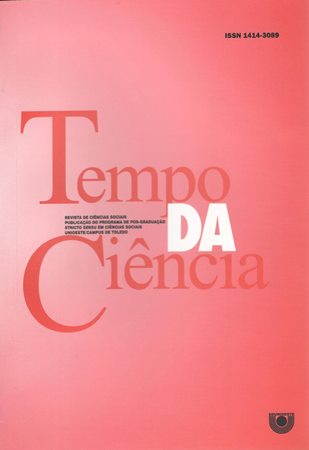DAS POLÍTICAS PÚBLICAS E DO CONTROLE SOCIAL: AVALIANDO TRÊS AÇÕES PARA CIDADANIA EM SEGURANÇAS PÚBLICA
DOI:
https://doi.org/10.48075/rtc.v19i37.9101Keywords:
Educação em/para Direitos Humanos, Segurança Pública e Cidadania, Políticas e AvaliaçãoAbstract
The article ponders on three experiments included in National Public Policy ofEducation for/in Human Rights for the Prevention of Violence, in which the authors areresearchers, teachers and managers, so the work is the result of a direct observation, documentalanalysis and analysis of testimonials. The first, led by prosecutors - BA, calledPROGEDH (Education Program in Human Rights), involved partner institutions, aiming toform and train on Human Rights elementary school students from public schools in Salvador.The second, called PROERD (Military Police Educational Program of Drug Resistance andViolence), the responsibility of the Public Security Secretariat of Bahia, is the expression ofa shift paradigm– from the exclusive repression to the idea of prevention - likewise thethird, called PROGESP (Program of Studies, Research and Training in Policies and Managementof Public Security) linked to the National Network of Studies on Public Security thatworks directly with the training of operators from the Public Security System, led by numerousactions by the Federal University of Bahia. Thus, the article is scoped to describe someobservations about how these experiences - one finished and two under way - expose someweaknesses and advances, such as: a shared responsibility in the formulation, managementand implementation of violence prevention, the specificity of prevention in the social universeand about the kinds of sociability developed during the actions. We use authors suchas Frey; Dias Sobrinho; Chianca; Marino; Armani; Dallari; Pinheiro; Adorno; Serrato; Castanharand Costa, among others.Downloads
Published
How to Cite
Issue
Section
License
Aviso de Direito Autoral Creative Commons
Política para Periódicos de Acesso Livre
Autores que publicam nesta revista concordam com os seguintes termos:
1. Autores mantém os direitos autorais e concedem à revista o direito de primeira publicação, com o trabalho simultaneamente licenciado sob a Licença Creative Commons Attribution que permite o compartilhamento do trabalho com reconhecimento da autoria e publicação inicial nesta revista.
2. Autores têm autorização para assumir contratos adicionais separadamente, para distribuição não-exclusiva da versão do trabalho publicada nesta revista (ex.: publicar em repositório institucional ou como capítulo de livro), com reconhecimento de autoria e publicação inicial nesta revista.
3. Autores têm permissão e são estimulados a publicar e distribuir seu trabalho online (ex.: em repositórios institucionais ou na sua página pessoal) a qualquer ponto antes ou durante o processo editorial, já que isso pode gerar alterações produtivas, bem como aumentar o impacto e a citação do trabalho publicado (Veja O Efeito do Acesso Livre).
Licença Creative Commons
Esta obra está licenciada com uma Licença Creative Commons Atribuição-NãoComercial-CompartilhaIgual 4.0 Internacional, o que permite compartilhar, copiar, distribuir, exibir, reproduzir, a totalidade ou partes desde que não tenha objetivo comercial e sejam citados os autores e a fonte.


